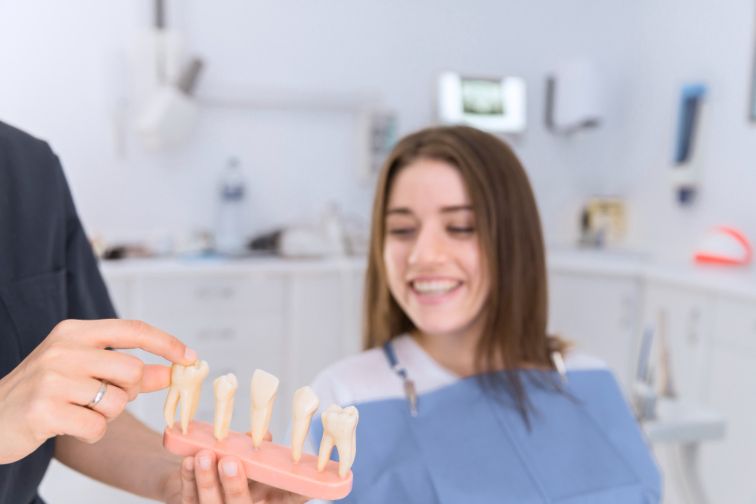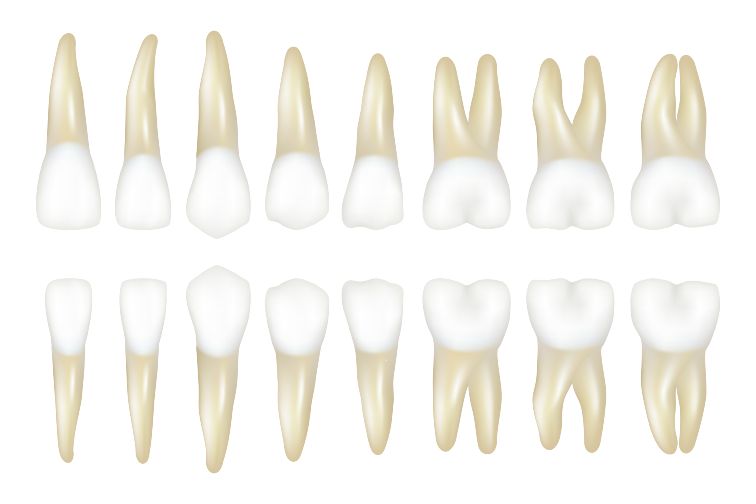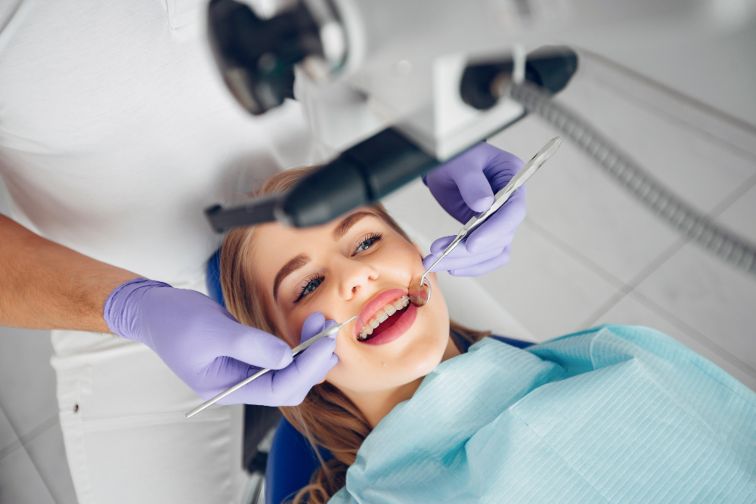When it comes to teeth-related concerns, most people worry about tooth decay, cavities, gum disease, mouth sores, and tooth sensitivity. Also, aesthetically speaking, people are usually more concerned about having fewer teeth in their mouth than having too many of them.
That said, can having too many teeth really be a problem?
Yes, it can and this specific condition is known as - hyperdontia teeth or supernumerary teeth.
People who are not familiar with this dental condition have a lot of burning questions, but the most pressing one is this - can hyperdontia cause serious problems?
The short answer is no, but it can make a patient’s life rather unpleasant.
This really sounds like a nasty disease, but people are mostly scared of it simply because they are not well-informed. This article can remedy that.

In order to properly understand this dental condition, patients have to know what they’re dealing with.
Therefore, what is hyperdontia?
Hyperdontia is a rare condition that causes too many teeth to grow in a person’s mouth. These extra teeth, also called supernumerary teeth, usually grow in the curved areas where teeth are attached to a person’s jaw. This area is better known as the dental arches.
As you probably know, the first 20 teeth that grow in a child’s mouth are known as primary teeth. In most cases, they fall out when a kid turns 5 or 6 and then the 32 adult teeth come in to replace them. Those adult teeth are also called permanent teeth.
Hyperdontia can cause a person to have extra primary or permanent teeth. However, it should be noted that extra primary teeth are more common when it comes to this rare dental condition.
The symptoms of this condition are pretty obvious. The main symptom is the growth of extra teeth directly behind or close to a person’s usual primary or permanent teeth. In most cases, supernumerary teeth usually appear in adults. It should be stated that they are twice as common in men than they are in women.

Just like regular types of teeth, not all supernumerary teeth are alike. There are many types and they are distinguished by their shape and position.
Here are the known shapes of supernumerary teeth:
Here are the known positions of supernumerary teeth:
To be fair, extra teeth in the mouth is not something people want to see. This is exactly why patients who are prone to hyperdontia or the ones who are concerned about it, want to know what causes this condition.
Unfortunately, dentists are not able to give a definitive answer as to what hyperdontia causes are. However, they believe that it is associated with some hereditary conditions.
Here’s what they are:
As expected, most of these conditions are affecting bones in a patients body. Dentists remain hopeful that they will soon be able to determine the exact cause of hyperdontia.
The good news is that hyperdontia can’t cause serious problems and it’s usually not too painful. Nonetheless, the extra teeth in the mouth can put pressure on a patient’s jaw and gums, thus causing them to swell. This can be a bit painful.
Most patients are more concerned about the aesthetics because multiple hyperdontia can also make a person’s permanent teeth look crooked. If this happens, people usually have to wear braces or aligners. This condition sounds and looks bad, but this is as bad as it gets. That should be a relief for most patients.

People who have this condition usually have only one question - can hyperdontia teeth be removed?
The answer is yes and the good news is that hyperdontia surgery is a pretty simple procedure. It’s a bit more uncomfortable than putting crowns and bridges, but nothing too painful. However, not all patients have to undergo this surgery. Here are the situations when hyperdontia removal is necessary:
If, however, the patient is not experiencing pain, but mild discomfort, dentists recommend a different kind of hyperdontia treatment that involves taking mild anti-inflammatory drugs, like ibuprofen, for example.
Patients who are prone to this condition or notice the extra teeth coming in should consult their dentist as soon as possible. Hyperdontia can seem scary, but if the patient consults a dentist on time, there will be no cause for concern.

